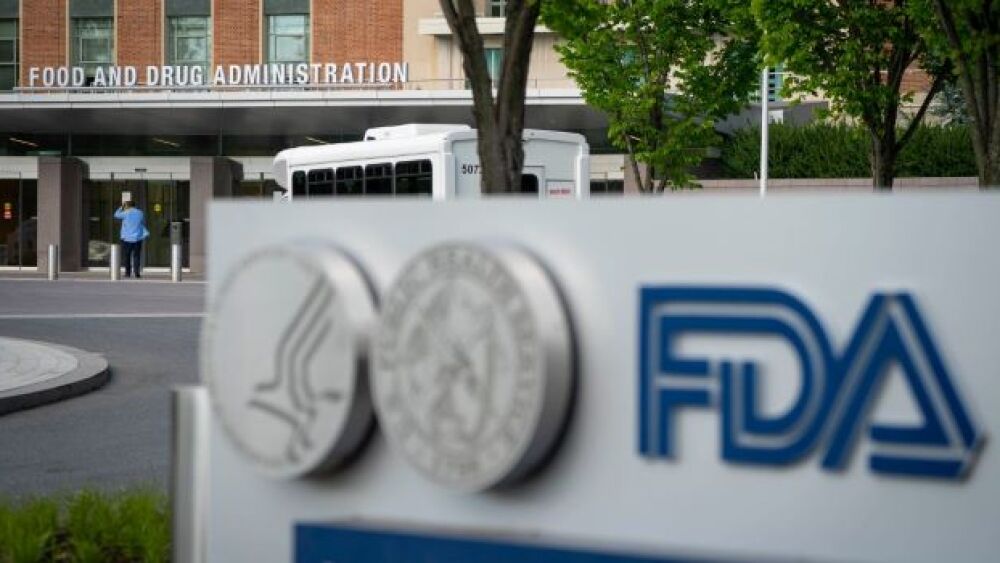The FDA has approved Rigel’s Rezlidhia for the treatment of adults with relapsed or refractory AML with a susceptible isocitrate dehydrogenase-1 mutation.
Sarah Silbiger/Getty Images
The FDA has approved Rigel Pharmaceuticals’ Rezlidhia (olutasidenib) for the treatment of adults with relapsed or refractory (r/r) acute myeloid leukemia (AML) with a susceptible isocitrate dehydrogenase-1 (IDH1) mutation, the company announced Thursday.
The approval was based on results from the open-label Phase II trial of the drug alone at a 150 mg twice-daily dose in r/r AML patients.
In August, Rigel inked a deal with Forma Therapeutics for an exclusive, worldwide license agreement to manufacture and commercialize Rezlidhia. Regel is handling the launch and commercialization in the U.S. with plans to partner with other companies outside the U.S.
The primary endpoint was a composite of complete remission (CR) and complete remission with partial hematological recovery (CRh). CRh is identified as less than 5% blasts in the bone marrow, no evidence of disease and partial recovery of peripheral blood counts.
The study demonstrated a 35% CR+CRh rate in mIDH1 r/r AML, with a median duration of response of 25.9 months. The drug was well tolerated, with a safety profile largely similar to those seen in AML patients receiving treatment.
Differentiation syndrome, a potentially fatal complication of treatment of AML with IDH inhibitors, was seen in 16% of patients in the trial, but in most cases, it was manageable with dose interruption and corticosteroids. Liver toxicity, seen as increased liver function parameters, was observed in 23% of patients, and most were managed with changes in dosing.
“We think Rezlidhia will be a market-leading treatment for IDH-susceptible acute myeloid leukemia and this is an exciting milestone for Rigel, making it the second approved treatment in our hematology-oncology portfolio,” Raul Rodriguez, Rigel’s president and CEO, said in a conference call.
Approximately 20% of AML cases harbor a mutation in the IDH genes, either in IDH1 or IDH2. These mutations cause the production of an oncometabolite 2-hydroxyglutarate, which stimulates leukemogenesis.
Wolfgang Dummer, M.D., CMO of Rigel, noted in the call that “depending on which mutations are predominating, different therapies may be indicated. One such important mutation is in IDH1, which is seen in about 6-9% of AML patients.”
Within that well-defined patient population, about 60% of patients were “fit for intensive therapy with a goal of hopefully getting those patients to transplant if they have complete remission. The remaining 40% of patients are not treated with intensive therapy, given less-intensive outpatient therapy,” Dummer said.
Rigel’s announcement follows recent progress in this indication. In May, the FDA approved Servier’s Tibsovo (ivosidenib) in combination with azacytidine for patients with newly diagnosed IDH1-mutated AML in patients 75 years or older or with comorbidities that don’t allow them to have intensive induction chemotherapy.





